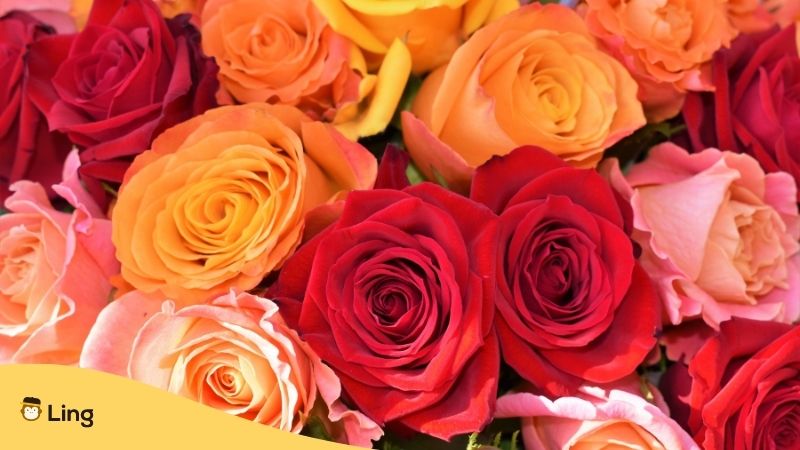French poetry, with its exquisite elegance and profound emotional depth, has captivated readers for centuries. From the medieval troubadours to the famous French poems of the symbolists and surrealists of the 20th century, French verse has birthed some of the most remarkable works in world literary history. This time, we will embark on a journey into the heart of French poetry, exploring its distinctive features, key movements, and renowned poets who have shaped its evolution.
The Origins Of French Poetry
The roots of French poetry can be traced back to the Middle Ages when troubadours composed verses in the vernacular language, known as “langue d’oc” or “Occitan.” These troubadours, often of noble birth, crafted songs of courtly love, exploring themes of devotion, chivalry, and unrequited passion. Notable figures like Guillaume de Machaut and François Villon emerged during this period.
The Renaissance And Classical Periods
The Renaissance witnessed a significant shift in French poetry and the composition of French poems, with the introduction of Petrarchan sonnets and the establishment of fixed poetic forms. Clément Marot, known for his refined and witty verses, played a crucial role in popularizing the sonnet in French culture.
During the Classical period, French poetry reached its pinnacle of refinement and strict adherence to rules. Pierre de Ronsard and Joachim du Bellay were prominent figures of this era, known for their adherence to the strict rhyme schemes and metrical patterns of the “pleiade” movement.
Romanticism And Symbolism
With the advent of Romanticism in the 19th century, poems in the French language underwent a profound transformation. Romantics such as Victor Hugo, Charles Baudelaire, and Paul Verlaine challenged the rigid structures of classical verse and focused on expressing raw emotions and personal experiences. Hugo’s epic “Les Misérables” and Baudelaire’s “Les Fleurs du Mal” revolutionized French poetry and French literature by embracing themes of social injustice, existential anguish, and the beauty found in the mundane.
Below is Victor Hugo’s probably most famous French poem, “Tomorrow at Dawn,” published in the poetry collection “Les Contemplations” in 1856. One of a number of short French poems, it is one of the best-loved French poems and describes the great poet’s visit to his daughter’s grave. The English translation is also below.
Demain Dès L’aube (Tomorrow At Dawn), Victor Hugo
Demain, dès l’aube, à l’heure où blanchit la campagne,
Je partirai. Vois-tu, je sais que tu m’attends.
J’irai par la forêt, j’irai par la montagne.
Je ne puis demeurer loin de toi plus longtemps.
Je marcherai les yeux fixés sur mes pensées,
Sans rien voir au dehors, sans entendre aucun bruit,
Seul, inconnu, le dos courbé, les mains croisées,
Triste, et le jour pour moi sera comme la nuit.
Je ne regarderai ni l’or du soir qui tombe,
Ni les voiles au loin descendant vers Harfleur,
Et, quand j’arriverai, je mettrai sur ta tombe
Un bouquet de houx vert et de bruyère en fleur.
Tomorrow, at dawn, at the moment when the day breaks,
I will go. You see, I know that you are waiting for me.
I will go through the forest, I will go across mountains.
I cannot stay away from you any longer.
I will walk eyes fixed on my thoughts,
Without seeing anything outside, without hearing a noise,
Alone, unknown, back hunched, hands crossed,
Sad, and the day for me will be as the night.
I will watch neither the gold of the evening setting sun,
Nor the faraway sailboats descending upon Harfleur.
And when I arrive, I will put on your grave
A bouquet of green holly and heather in bloom.

Another great poet associated with the French poems of the Romantic period was Marceline Desbordes-Valmore. A friend of Honoré de Balzac and survivor of the French Revolution, her poetry often tackled dark and depressing themes. Here is her poem “The Roses of Saadi”:
Les Roses De Saadi (The Roses Of Saadi), Marceline Desbordes-Valmore
J’ai voulu ce matin te rapporter des roses;
Mais j’en avais tant pris dans mes ceintures closes
Que les nouds trop serrés n’ont pu les contenir.
Les nouds ont éclaté. Les roses envolées
Dans le vent, à la mer s’en sont toutes allées,
Elles ont suivi l’eau pour ne plus revenir;
La vague en a paru rouge et comme enflammée.
Ce soir, ma robe encore en est tout embaumée…
Respires-en sur moi l’odorant souvenir.
I wanted this morning to bring you some roses;
But I’d taken so many in my belts’ closures
That the too-tight knots couldn’t hold every bloom.
The knots burst. The roses flew away
In the wind, to the sea, they all went astray
They followed the water, never to return;
The wave appeared red, and as if set alight.
My dress is still all embalmed by it tonight…
Breathe it on me, a memory in perfume.
The late 19th and early 20th centuries witnessed the rise of Symbolism, a movement that sought to convey complex French feelings and emotions through vivid imagery and musicality. Symbolist poets like Stéphane Mallarmé, Arthur Rimbaud, who wrote Le Dormeur du Val, and Paul Valéry explored unconventional themes and experimented with language and form in their famous French poems. Their works, characterized by rich symbolism and enigmatic beauty, pushed the boundaries of poetic expression. Here is one of Arthur Rimbaud‘s most famous French poems, “The Sleeper in the Valley”:
Le Dormeur Du Val (The Sleeper In The Valley), Arthur Rimbaud
C’est un trou de verdure où chante une rivière,
Accrochant follement aux herbes des haillons
D’argent ; où le soleil, de la montagne fière,
Luit : c’est un petit val qui mousse de rayons.
Un soldat jeune, bouche ouverte, tête nue,
Et la nuque baignant dans le frais cresson bleu,
Dort ; il est étendu dans l’herbe, sous la nue,
Pâle dans son lit vert où la lumière pleut.
Les pieds dans les glaïeuls, il dort. Souriant comme
Sourirait un enfant malade, il fait un somme :
Nature, berce-le chaudement : il a froid.
Les parfums ne font pas frissonner sa narine ;
Il dort dans le soleil, la main sur sa poitrine,
Tranquille. Il a deux trous rouges au côté droit.
It is a green hollow where a river sings
Madly catching on the grasses
Silver rags; where the sun shines from the proud mountain:
It is a small valley which bubbles over with rays.
A young soldier, his mouth open, his head bare,
And the nape of his neck bathing in the cool blue watercress,
Sleeps; he is stretched out on the grass, under clouds,
Pale on his green bed where the light rains down.
His feet in the gladiolas, he sleeps. Smiling as
A sick child would smile, he is taking a nap:
Nature, cradle him warmly: he is cold.
Odours do not make his nostrils quiver;
He sleeps in the sun, his hand on his breast,
Quieted. There are two red holes on his right side.

The Influence Of Surrealism And Existentialism
In the 20th century, the Surrealist movement arrived as a dominant force in French poetry. Led by André Breton, Surrealists sought to tap into the subconscious mind and liberate poetic expression from conventional norms. René Char, Paul Éluard, and Robert Desnos embraced dreamlike imagery, automatism, and the juxtaposition of seemingly unrelated ideas, resulting in surreal and thought-provoking compositions.
Simultaneously, existentialist poets such as Jean-Paul Sartre and Paul Celan grappled with the existential questions of existence, freedom, and identity. Their most famous published poems were characterized by introspection, philosophical inquiry, and a deep sense of solitude.
Contemporary French Poetry
In the contemporary era, French poetry continues to evolve, embracing various styles and themes. Notable contemporary poets such as Yves Bonnefoy, Andrée Chedid, and Aime Césaire have contributed to the diverse landscape of French verse, exploring themes ranging from nature and love to social issues and cultural identity. These poets have demonstrated a remarkable ability to reinvent poetic forms, incorporating elements of prose, free verse, and experimentation.
Some Simple French Poetry Vocab
Now that you’ve learned about French poetry, here is some related vocabulary:
| English | French |
| A poem | Un poème |
| Poetry | La poésie |
| To recite | Réciter |
| To write | Ecrire |
| To read | Lire |
| Out loud | A haute voix |
| By heart | Par cœur |
| A simile | Une comparaison |
| A metaphor | Une métaphore |
| A rhyme | Une rime |
| A stanza | Une strophe |
| A poet (m) | Un poète |
| A poet (f) | Une poétesse |
Explore More French Poems With Ling App
French poetry is always best appreciated in the original French version. With Ling app, French learners can build on their French skills with language lessons created by native speakers.
Ling app has all the tools you need to appreciate the wonderful world of French poems, so why not download it today from Google Play or App Store?



































































